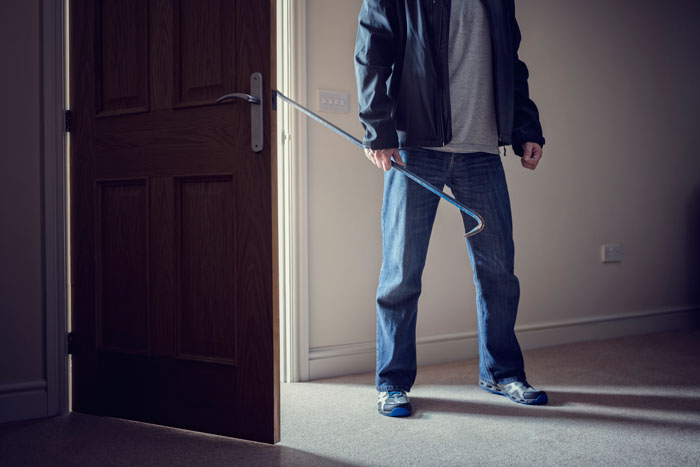
Stay Safe While Taking Advantage of Online Dating
The days of going to bars hoping to find that special someone are long over. Bar hopping and awkward getting-to-meet-someone scenarios have pretty much been completely replaced by online dating sites. There are several reasons online dating sites are so popular, including the following.
- They’re considerably less expensive than going to bars and ordering drinks night after night.
- Everyone you connect to via an online dating site is genuinely looking for someone.
- You can pursue potential love matches while sitting at home, in your pajamas, while gorging on ice cream.
- You can quickly reject anyone who doesn’t appeal to you simply by scrolling past. There’s no need to worry that you’re going to hurt their feelings or damage their self-confidence.
While there are many perks connected to online dating, there are also a few drawbacks. While most of the people who use the various dating sites are good people, a few predators do occasionally create accounts. The good news is that there are some things you can do to protect yourself while engaged in online dating.
Create a New Email
Do not use any email that you regularly correspond with. Create a brand new email account that isn’t linked to your personal data. Do not attach social media accounts, your address, or your phone number to this email address.
Get a Good VPN
VPNs are designed to protect your location while you’re using the internet. A good VPN makes it look like you’re in one country while you’re really in a different one that’s on the other side of the globe. A good VPN makes it very difficult for anyone you’re corresponding with to track you down. Make sure you have the VPN on whenever you’re using the online dating site or using the email connected to the dating site.
Make Your Photos Generic
Before uploading photos to your profile, carefully look over them and make sure that there’s nothing in them that could give clues to where you live or the places you routinely hang out.
Meet in Public and Drive Yourself
If you’ve connected with someone and think they are a potential match, make sure your first several meetings are in a public place and arrange for your own transportation.
Tell People Where You’re Going and Check-In with Them
The first few times you go out with an internet date, let one or two people you trust know where you’re going, who you’ll be with, and what you’ll be doing. You should also set a time when you’ll check back in with them and let them know how it’s going. If the date is going well and you decide to keep the experience going, let your check-in people know about the change. If the date changes venue at any point, share this information.
The best way to stay safe while engaged in online data is to trust your gut. If you get a funny feeling that the person you matched up with isn’t quite what they seem, you should immediately cut ties and look for a new potential match.

How to Handle a Public Intoxication Charge
Most people assume that as long as they don’t drive after they’ve been drinking, they have nothing to worry about. What they don’t realize is that in California, you can be charged with public intoxication.
While it’s perfectly okay to drink in California, while you’re in public, you’re not allowed to drink to a massive excess. In California, there are two ways your drinking could result in your being charged with public intoxication.
The first is that you can’t be so drunk, you become a danger to yourself and to others. This means that if you leave the bar with the intention of walking home, but are so drunk you’re walking into traffic, picking fights, are doing something that makes the police think you’re endangering either yourself or others, you can be arrested. Its even possible that if you pass out on your walk home and are found by the police that in addition to taking you to the hospital for an exam, they will also charge you with public intoxication.
The other thing you can do that will prompt the police to arrets you for public intoxication is obstructing public ways. If your in the middle of sidewalk, public entrance, or road and people are unable to get around you, you’ll be taken to jail.
In California, public intoxication is a misdemeanor offense. While this isn’t as serious as being accused of a felony, if you’re convicted, you will have a criminal record. It is something employers and anyone else who runs a criminal background check on you will discover. While you can plead guilty to the charges right away, in the long run, it’s usually in your best interest to consult with an attorney who will look at the details surrounding your case and help you decide what the best and least life altering course is.
If you’re convicted of public intoxication in California, the maximum sentence you receive is six months in a county jail and/or a $1,000 fine. It’s common for individuals who are convicted of public intoxication in California to be ordered to take on community service and to pay a fine. In some situations, mandatory substance abuse awareness classes are part of the sentence.

Different Ways Social Media can get you Into Legal Trouble
Social media is supposed to be a fun way to stay connected to your family and friends, and for the most part, that’s exactly what it is. However, as some people have found out, there are a few different ways that social media can cause you to get into some legal trouble.
Getting a Too Personal with a Follower
Many people make friend via social media platforms and these friendships become long lasting and healthy. The problem is that it’s easy to cross the line on social media, until what you thought was an honest attempt to get to know someone results in stalking and harassment charges.
Online social media is a massive problem. This occurs when you start to become too invested in another person’s life and start forcing yourself into their DMs, become aggressive with the comments you leave on the other person’s posts can make them uncomfortable to the point that they will file charges.
Posting About Illegal Activity
A surprising number of people inadvertently attract police attention by posting about crimes they’ve been involved in. Some simply mention that they were at the scene of a crime. Some people will post images of stolen products. There have even been cases where people were charged and convicted of crimes because they posted detailed information about the crime and their involvement on their social media case.
If you have been involved with a crime or even in activity that seems suspicious, it’s in your best interest to keep the information off of your social media platforms. You don’t want to make it easy for the police to secure an arrest warrant.
The best way to stay out of legal trouble when you’re updating your social media accounts is making sure that you take a few minutes and consider each post. Is it something that will attract the attention of the police, could violate a copyright law, or make it appear that you have a questionable personality.
Posting Images That Aren’t Yours Without the Owner’s Permission
This is one that isn’t discussed as much as it should be. While you may not seem the harm in posting a picture you either found while surfing the ‘net or a sample from a photoshoot you recently had with a photographer, doing so is actually copyright infringement. If the photo’s actual owner is upset enough, they could file charges. This has happened a few times to large companies who posted photos they didn’t actually own. In most cases, the photo’s owner approached the company and asked for compensation.

The Best Way to Smoothly Get Through a Traffic Stop
Traffic stops are always a nerve-wracking experience, especially if you’re not sure why the cop is signaling for you to pull over. The good news is that there are some things you can do to make the entire process go more smoothly.
Don’t Try to Run
Many of us have a strange urge to try to run and evade the police, even when we know we haven’t done anything massively wrong. You need to ignore the urge. Not only will you put yourself in a position where you could cause an accident, but you will also get an even heftier ticket and possibly be charged with a misdemeanor. It’s in your best interest to take a deep breath and resign yourself to the fact that you’re getting pulled over.
Stay Calm
Getting upset isn’t going to help the situation but staying calm will. The calmer you are as the officer approaches your car, the smoother the traffic stop will go. Not only will you find it easier to understand what the officer is asking you when you’re calm, but you’re also less likely to do or say something that will irritate the officer. Calm drivers are far more likely to be let off with a warning than drivers who are upset and belligerent.
Find a Safe Place to Pull Over
Yes, you want to pull over shortly after the police signal you to stop, but you have the right to do so in a safe place. If possible, pull over into a parking lot or look for a place with a wide shoulder.
Don’t Argue With the Officer
If the officer writes a ticket, but you don’t think you’ve done anything wrong, don’t start arguing with the officer. It’s unlikely that the argument will do anything but make the situation worse. If you don’t think the ticket is fair, accept it when the officer hands it to you. Once you’re home, you can arrange to argue your case in front of a judge.
Don’t Over Share
When it comes to talking to the officer, you want to speak as little as possible. Yes, you want to be polite. Yes, you should answer their questions honestly. What you don’t want to do is inadvertently say something that could get you into more trouble. If you have passengers, they should remain quiet unless the officer asks them a direct question.
If you follow these tips, the next time you’re pulled over should be a smooth process.

What You Need To Know About Property Crimes in California
While the term property crimes gets tossed around by the media, in California, you aren’t going to be charged with a “property crime.” The reason for this is because, in California, the phrase property crime is actually a blanket term that’s used to describe multiple crimes.
The four most common property crimes in California are:
- Arson
- Theft
- Burglary
- Vandalism
If the media says that you have been charged with one or more property crimes, it means you’ve been charged with one or more of these offenses.
Arson is pretty self-explanatory. Arson happens when you deliberately set fire to a property. In California, arson is always a felony. If you’re convicted, you will spend anywhere from 16 months to nine years in prison. One of the big factors that determines how long you’re incarcerated includes if you set fire to your own personal property, if the burned structure was inhabited, and if anyone suffered a serious injury as a result of the fire.
One of the interesting things about arson is that it’s the only property crime you can be charged with, even when the property is your own.
There are multiple types of theft charges in California. For a theft to be considered a property crime, it had to have been committed on someone else’s property. Examples of theft that fall into the category of property crime include:
- Shoplifting
- Grand theft auto
- Robbery
- Embezzlement
- Package theft
Whether your charges are for misdemeanor theft or felony theft depends on the collective value of what was stolen. If the property was less than $900, you’d only face misdemeanor theft charges. If it exceeded $900, you’d be charged with a felony.
Most people not only think of burglary as a property crime but also as a violent crime. To be charged with burglary in California, not only do you have to break into someone’s property (house, barn, shed, storage unit), but you have to do so for the purpose of stealing something. If you’re convicted of second-degree or first-degree burglary in California, you’ll face up to 20 years in a California state prison.
Vandalism, while serious, is often considered the most minor of California’s property crimes. Vandalism is simply the destruction of someone else’s property. To be convicted of vandalism in California, you had to intentionally create the damage and knew the property wasn’t yours. The degree of punishment connected to vandalism in California depends on how much damage was caused. Restitution is often part of the sentence.

Understanding How Bail Works With Absolute Bail Bonds
We understand how bail can be a stressful and confusing situation. Let us reduce your stress as our professional and fully licensed bail bondsmen walk you through the bail bond process, answering all your questions.
The bail bond process is quite simple. Of course, there is going to be its share of legal print, but overall, it’s very understandable.
Question: What is a bail bond for?
Answer: A bail bond is a written promise that the defendant will pay a fixed amount of money for his or her release from jail. The fixed amount will be 10% of the full bail amount.
Question: Does the full fixed amount need to be paid upfront before the defendant can be released?
Answer: No. The bail bond company will calculate a workable payment plan the defendant will be released from jail and following that, payments on the bail bond will continue to be made.
Question: What are the contingencies?
Answer: The defendant is required to show up for all court dates. If the court has additional mandates, like attending counseling, staying away from someone, or someplace, and not leaving the state, for example, the defendant will need to abide by these as well.
Question: What if they don’t?
Answer: The bail bond will be revoked, and the defendant will be taken back into custody. In addition, the full bail amount may need to be paid off.
Question: Is the money refundable at the end of the trial, if my loved one obeyed all his or her orders?
Answer: No. Think of the fixed price for the bail bond as a fee for the bail bond services. But, most people use bail bonds to bail out of jail because, in the long-term view, it is more affordable for them.

What Happens if You Fail to Appear for Jury Duty?
Our justice system depends heavily on jury duty. If you are contacted about jury duty, you’re expected to attend and uphold your civic responsibilities.
First, it is important to understand that even though you have been contacted about jury duty and are expected to serve, there are some exceptions. The court will excuse you for valid health concerns as well as a few other reasons. That doesn’t mean that because you’re in ill health, you don’t have to respond to the summons. You will have to contact the court and discuss how to go about proving your concerns and validating them before you’re excused.
While illness is the most common reason for a person to be excused from jury duty, it’s not the only reason. Other valid reasons include the following:
- You’re a full-time student
- Occupational domain
- You’re connected to the case
- You have a strong, unshakeable opinion about one of the issues surrounding the case
- You have a great deal of advanced knowledge of the case
- You’re elderly (once you’ve passed your 70th birthday, you’re no longer required to serve on a California jury.)
If you aren’t able to be excused from your jury duty summons, you are expected to show up at the courthouse at the appointed time and date. The first time you fail to appear, you’ll receive a postcard from the court giving you a second chance. If you ignore that second postcard, you’ll be charged with contempt of court.
Getting charged with contempt of court for missing jury duty is not a laughing matter. This is a criminal charge. You will have to appear before a judge who will decide how you’re failure to honor your jury duty obligations will be handled. They could order you to spend a few days in jail, do community service, or even fine you up to $1,500.
If, for some reason, you’re unable to honor a jury duty summons in California, you are allowed to postpone your jury duty. This isn’t an indefinite postponement. You’re only allowed to ask for two jury duty postponements during a 12-month period.
When all is said and done, it’s in your best interest to handle the jury summons as soon as you receive it.

What is Sober Living in California? How Does It Work?
When most people hear the term sober living, they assume that it refers to a person who has decided to completely abstain from alcohol and drugs.
The truth is that sober living is actually a program that’s designed to help addicts start the long road to recovery.
Sober living in California involves an addict moving into a facility where they will not only be able to avoid temptation but will also be provided with the tools needed to rebuild their lives and learn how to live without drugs/alcohol. In the past, many of the facilities that currently identify as sober living facilities were called halfway houses.
Most of the residents at sober living facilities are individuals who have been recently released from jail for drug charges. Many have just completed a lengthy sentence. The idea behind sending them to a sober living facility is that it provides them with a place to stay and the resources needed to ease their transition back into reality. While many of the people enrolled in one of California’s sober living facilities have been recently released from jail, some are individuals who don’t necessarily have a criminal record but were actually residents of a long-term rehab program who want to reenter life outside of rehab at a slower pace.
The great thing about sober living facilities in California is that they do more than provide residents with a place to stay. They are no longer run like mini-jails that some halfway houses became. While the residents do have rules they have to follow while they are residing at the sober living facility, they also have access to tools and resources that would have been difficult for them to find had they simply returned to their homes.
One of the things sober living residents learn is how to embrace a sober lifestyle and resist the temptation to give into their addiction once they are reunited with their loved ones. This education can include recognizing which people aid in their addiction. What habits triggered their addiction. How to replace illegal substances with healthier, less addictive options.
Each sober living facility has different rules, policies, and approaches to helping the residents establish the foundation for a sober future, but most have a few common rules, which include:
- Zero-tolerance for addictive substances
- Frequent alcohol and drug tests
- Mandatory chores
- Curfews
- Employment requirements
- Mandatory attendance at sobriety support groups and rehabilitation programs
While each person’s experiences are different, many of the people who have gone through one of California’s sober living programs credit the program with giving them the confidence and tools needed to enjoy a sober lifestyle even after they’ve graduated from the sober living program.

